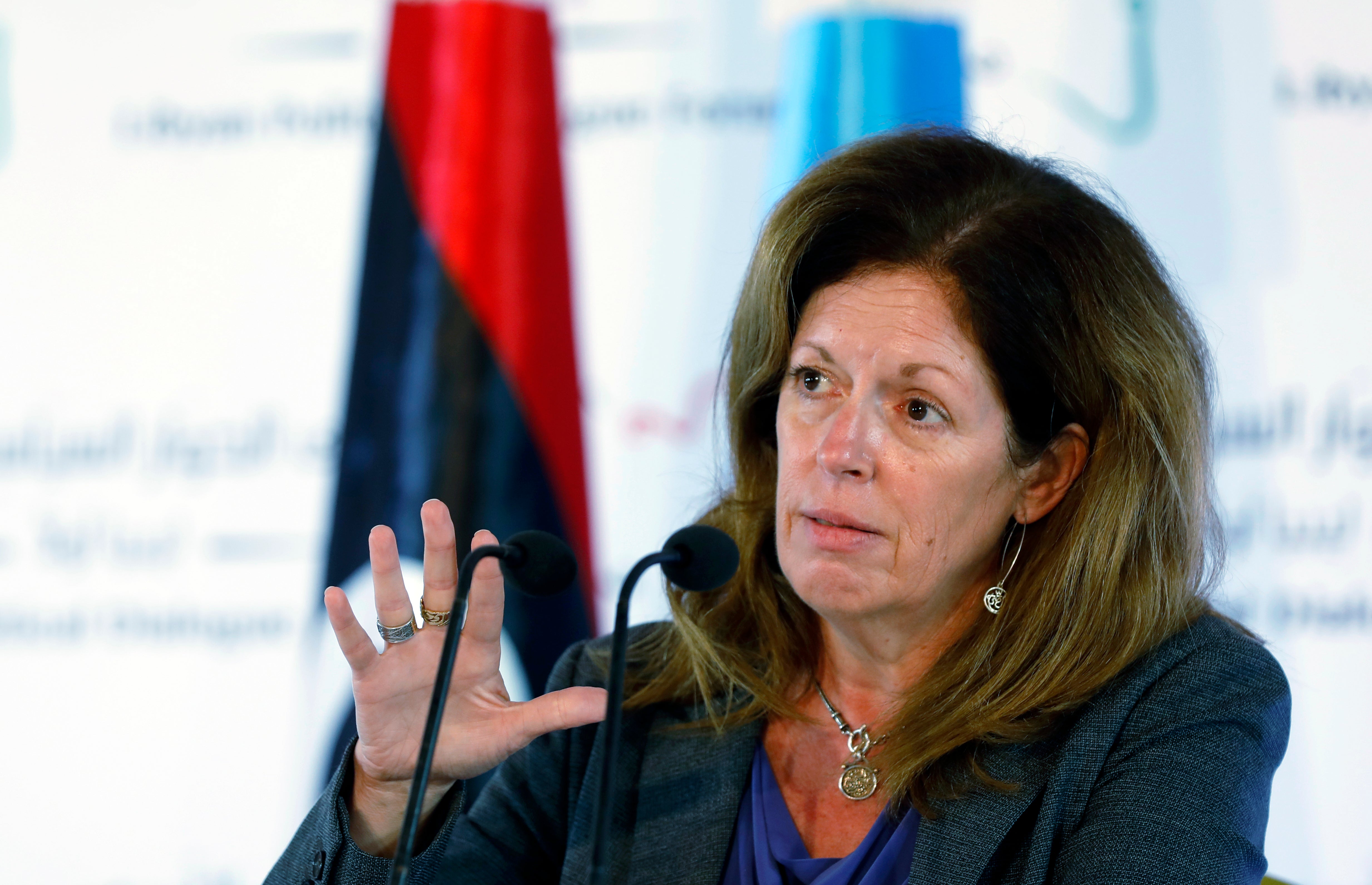Libya's future in balance in UN-backed leadership vote
Delegates from Libya’s opposing sides are kick off a five-day meeting Monday to choose an interim prime minister and three-person presidency council, a crucial bid to unite the ailing but oil-rich country before an election in December

Your support helps us to tell the story
From reproductive rights to climate change to Big Tech, The Independent is on the ground when the story is developing. Whether it's investigating the financials of Elon Musk's pro-Trump PAC or producing our latest documentary, 'The A Word', which shines a light on the American women fighting for reproductive rights, we know how important it is to parse out the facts from the messaging.
At such a critical moment in US history, we need reporters on the ground. Your donation allows us to keep sending journalists to speak to both sides of the story.
The Independent is trusted by Americans across the entire political spectrum. And unlike many other quality news outlets, we choose not to lock Americans out of our reporting and analysis with paywalls. We believe quality journalism should be available to everyone, paid for by those who can afford it.
Your support makes all the difference.Delegates from Libya’s opposing sides kick off a five-day meeting on Monday to choose an interim prime minister and a three-person presidency council, in a crucial bid to reunite the troubled oil-rich country before an election in December.
The Libyan Political Dialogue Forum, including envoys from around Libya, meets under U.N. mediation in an undisclosed site outside Geneva in hopes of stabilizing a largely lawless country since Moammar Gadhafi's fall and killing in 2011.
The gathering, which will draw from an agreed list of candidates, caps a process begun in Berlin in January 2020 for a North African country mired in international meddling and pockets of violence despite a holding cease-fire.
The voting process take place under the mediation of the U.N. secretary-general’s acting special representative for Libya, Stephanie Williams. The interim authority to be chosen will seek to rebuild state institutions and lead Libya to a national election on Dec. 24.
The warring factions also agreed that a national referendum would be held on constitutional arrangements, laying the legal groundwork for the December vote.
The 75-member forum represents the three main regions of old Libya, Tripolitania in the west, Cyrenaica in the east, and Fezzan in the southwestern part of Libya — each to be represented on the three-member presidential council. The prime minister is to be chosen by garnering 70% of votes.
Twenty-four candidates are running for the presidential council posts. Those include Aguila Saleh, speaker of the east-based House of Representatives, Khaled al-Meshri, the head of the Tripoli-based government’s Supreme Council of State.
Among the candidates for the presidential council is Libya’s top judge Mohammed al-Hafi, whose candidacy has stirred up controversy. The country's Judges’ Association decried the move, saying Saturday he should have retired before running,
Twenty-one candidates are running for prime minister, including Fathi Bashaga, the powerful interior minister in Tripoli, and Ahmed Meitig, deputy prime minister of the U.N.-supported government.
On Thursday, Williams told the U.N. Security Council that the gathering amounted to “a decisive round of intra-Libyan talks.”
The same day, the United States called on Russia, Turkey and the United Arab Emirates to halt their military interventions in the country, as has been sought under the cease-fire agreement that has largely held in recent months.
The cease-fire deal, inked in October, included the departure of foreign forces and mercenaries from Libya within three months. But so far, no progress has been made on that.
Williams said in December there were at least 20,000 foreign fighters and mercenaries in Libya, and warned about a “serious crisis” as weapons continue to pour into the North African country.
Since the 2011 NATO-backed uprising ousted Gadhafi, Libya has been in turmoil and split between rival administrations in the east and west — each backed by an array of militias and foreign powers.
Turkey is the main patron of the U.N.-supported government in Tripoli, the capital, while Egypt, Russia and UAE back the forces of military commander Khalifa Hifter — who runs most of the east and south.
U.N. Secretary-General Antonio Guterres has said Libyans are making a “remarkable effort to come together” and said it’s crucial for foreign forces to withdraw.
___
Magdy reported from Cairo.